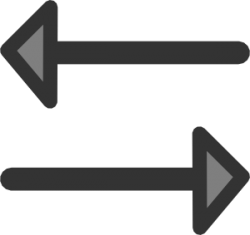Trading Educators Blog
Trading is a challenging business. Only the most skilled traders can make a living as an active, full time trader. Trading experts suggest that novice traders approach trading the same way that students pursue their vocation in professional school, which requires a resolute dedication to sharpen their skills in order to move to the top of their field. The seasoned, professional trader has rare and...
When confronted with a choice, how do you decide? Are the choices you make in life in general different from the choices you make in trading? It has been my experience that decisions in life that involve a perception of a possible loss, being wrong, or making a mistake, will very often take the same approach as the decisions you make in trading. Stuck Gary was a "want to be" trader for over twenty...
How can you tell if the breakout from consolidation is real or not? Trading rectangular block, i.e. ledges, or sideways chart patterns is a solid market trading approach so long as the breakout is not a false breakout. A legitimate breakout should not retrace to 50% of the block pattern range, as the most profitable trades never retrace below the breakout price. If the low of the daily breakout ba...
Many beginning traders undergo emotional extremes, feeling sheer ecstasy after a win, but crushing disappointment after a loss. However, as a mature trader, you grow to realize the folly of allowing the natural ups and downs of trading to impact your emotions. Although as a winning professional trader you may stay calm and relaxed even after a series of losses, remaining rational and composed can ...
Three psychological traits prevent traders from becoming consistently successful, fear, anger and guilt. Fear blocks the trade decision making process due to worry about negative events that may or may not occur in the future. Guilt blocks the trade decision making process with unresolved concern about something that happened in the past. Anger is an emotional response to guilt, fear, the indecisi...
Careful analysis of all possible alternatives and all possible consequences of your trading decisions is the first step in good decision-making. Make every attempt to avoid impulsive trading decisions, invariably these lead to taking unnecessary risks. Strive to have a clearly defined trading plan, but keep it as simple as possible. Chart the equity of your trading method so that you can quickly k...





